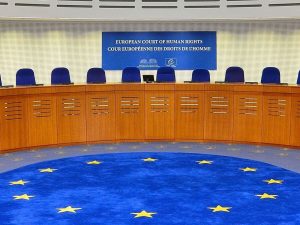A corporate greenwashing initiative has been accused of, unsurprisingly – greenwashing – only this time, by its own staff.
SBTi – corporate greenwashing
The Science Based Targets initiative (SBTi) is one of the worlds leading climate certification benchmarks. Notably, it vets the corporate climate action of nearly 8,000 companies globally.
Its founding partners include CDP, the United Nations (UN) Global Compact, the We Mean Business Coalition, the World Resources Institute (WRI), and the World Wide Fund for Nature (WWF).
However, on Thursday 11 April, SBTi staff called their employer out over its hypocrisy. In particular, staff accused it of “greenwashing” after allowing businesses to use carbon credits to offset pollution from their value chains.
On 9 April, SBTi had issued a statement rolling back its previous opposition to the use of carbon credits to offset scope 3 emissions. These occur in the value chain, and represents the lion’s share of the carbon footprints. In some cases, scope 3 account for more than 90% of companies’ emissions.
As a result, companies have looked for an easy way out – and carbon credits have been the answer. Projects that reduce or avoid emissions – like renewable energy, tree planting and forest protection – generate carbon credits. They then sell these to companies wanting to offset pollution from their activities.
However, as the Canary has previously documented, carbon offsetting is a highly controversial practice. Alongside numerous reports detailing the practices’ failure, its also a get out of jail free card for big polluters.
But of course, this didn’t stop one of the world’s premier corporate climate schemes from endorsing this de facto false climate solution.
Corporate “coup”
Staff slammed the new ruling by the SBTi as a “coup”. Staff have revolted, calling for the SBTi’s CEO and board to reverse the decision and for them to resign.
They sent a letter to the SBTi leadership. AFP reported that it said the board’s decision was taken without adequate consultation, defied science, and:
resulted in significant harm to our organisation’s reputation and viability.
It continued:
We stand ready to support any efforts aimed at ensuring that the SBTi does not become a greenwashing platform where decisions are unduly influenced by lobbyists, driven by potential conflicts of interest and poor adherence to existing governance procedures.
In the event that our concerns are not addressed, SBTi staff will have no choice but to take further action
Staff from “the Target Validation Team, Target Operations Team, the Technical Department, Communications, Impact and IT, and multiple department heads” signed the letter.
Corporate greenwashing accusations abound
However, the benchmark’s capitulation to big corporate polluters should hardly be surprising. Notably, this is because the scheme is already knee-deep in accusations of corporate greenwashing.
Significantly, it isn’t the first time an employee has lodged criticism against the initiative. In fact, one of its key founders criticised the scheme in 2021. Speaking to Climate Home News, former SBTi advisor Bill Baue said that the:
Science-Based Targets is not a science-based approach. I believe in this instance that SBTi… are putting their own interest above the interests of the public.”
Then, in June 2022, the New Climate Institute (NCI) assessed the climate plans of 25 corporations. Specifically, the SBTi had approved the climate plans of these companies, assessing them as compatible with staying in line with 1.5˚c or 2˚c of global heating.
Tellingly however, the NCI found that just one of the 25 met the SBTi’s own new net zero standard. Crucially, as Climate Home News reported, the NCI argued that the SBTi:
had a conflict of interest, as it is funded by the same companies whose plans it validates, charging them up to $14,500. It also questioned whether SBTi had sufficient resources to find hidden flaws in corporate plans.
For example, the Bezos Earth Fund and IKEA Foundation both finance the initiative. In other words – its yet another case of a sustainability initiative for corporate interests, by corporate interests.
Big polluter benefactors
And naturally, SBTi’s scheme includes the likes of big polluters and ecocidal multinationals like Ikea, Nestlé, and Unilever.
In February, investigative non-profit Disclose exposed a main Ikea supplier’s environmental crimes. In particular it had caused chemical pollution and illegal deforestation in Brazil.
Meanwhile, in Nestlé case, the company holds a litany of uneviable claims to ecocidal and human rights abuse fame. More recently, as the Canary reported in March, a report tied both Nestlé and Unilever to rampant deforestation in Indonesia.
Yet the SBTi’s corporate big polluter and human rights violator bent tracks too. Specifically, its founders have a history of rolling over for corporate actors.
For one, it wouldn’t be the first time the UN has opened the door wide to these vested corporate actors. In July 2023 for instance, the UN facilitated big agribusiness’s capture of key talks on fixing the planet’s broken food system.
Conservation charity WWF is no better. As the Canary also previously highlighted, the non-profit has long furnished its connections with big business. Moreover, it has a chequered record of perpetrating human rights abuses through an antiquated, and colonial ‘fortress conservation’ model.
SBTi’s ‘stamp of approval’ for climate-wrecking companies
So predictably, accusations of the SBTi have continued apace. In July 2023, more than 20 non-profits trashed the the scheme again in a letter to its chair. As signee Milieu Defensie (Friends of the Earth Netherlands) expressed:
the methodology SBTi uses is not in line with recent UN recommendations. NGOs ask SBTi to fix this, as their ‘stamp of approval’ currently is nothing more than greenwashing.
The letter highlighted a number of areas in which the SBTi was falling short on keeping companies on track with the Paris Climate Agreement.
For instance, the letter detailed how the SBTi was giving a free pass to businesses in the Forest, Land and Agriculture (FLAG) sectors on their scope 3 emissions.
As well as this, it set out how the SBTi should require companies to phase-out fossil fuels. It also underscored that the initiative allows companies to work towards the upper limits of the Paris Climate Agreement of 2˚c. Instead, it argued the companies:
must align to limit warming to1.5˚c
Not the ‘voice of science’
Ostensibly then, it appears as if the SBTi has bowed to its corporate benefactors.
It previously conducted a survey with corporations on its benchmark. As sustainability and business outlet edie reported:
54% of respondents identified Scope 3 emissions as a major barrier to setting net-zero targets
A SBTi board trustee’s statement said it all. María Mendiluce, CEO of the founding organisation We Mean Business Coalition, and a board trustee to SBTi, said:
The voice of business on this issue is clear… This change empowers companies to bring more innovation and investment into cutting emissions from their value chains
However, staff and non-profits scrutinising the move have not let it slide without a fuss.
Gilles Dufrasne from Carbon Market Watch sits on the technical advisory group to SBTi. He said that allowing their usage by companies represented a:
fundamental U-turn on SBTi policy so far
Moreover, he argued:
It is pretty much a coup from the board… It’s extremely serious, I’ve never seen anything like it.
On top of this, he told AFP that at least one member of the advisory group had resigned in protest.
Dufrasne said the decision was “extremely damaging” to corporate climate responsibility because it sent a signal that companies could just pay someone else if they can’t meet their own targets. He said that:
I’m not sure if SBTi’s credibility can survive this
Meanwhile, New Climate Institute’s spokesperson Carsten Warnecke said in a statement:
Anyone who still believed that the voice of science still had weight in this initiative has been proven wrong.
At the end of the day, it’s simply more proof the SBTi is nothing more than a glorified greenwashing front, designed to massage the sustainability-leaning egos of some of the world’s biggest corporate polluters.
Feature image via Alfred T. Palmer/Wikimedia, cropped and resized to 1200 by 900, image in the public domain
Additional reporting by Agence France-Presse




